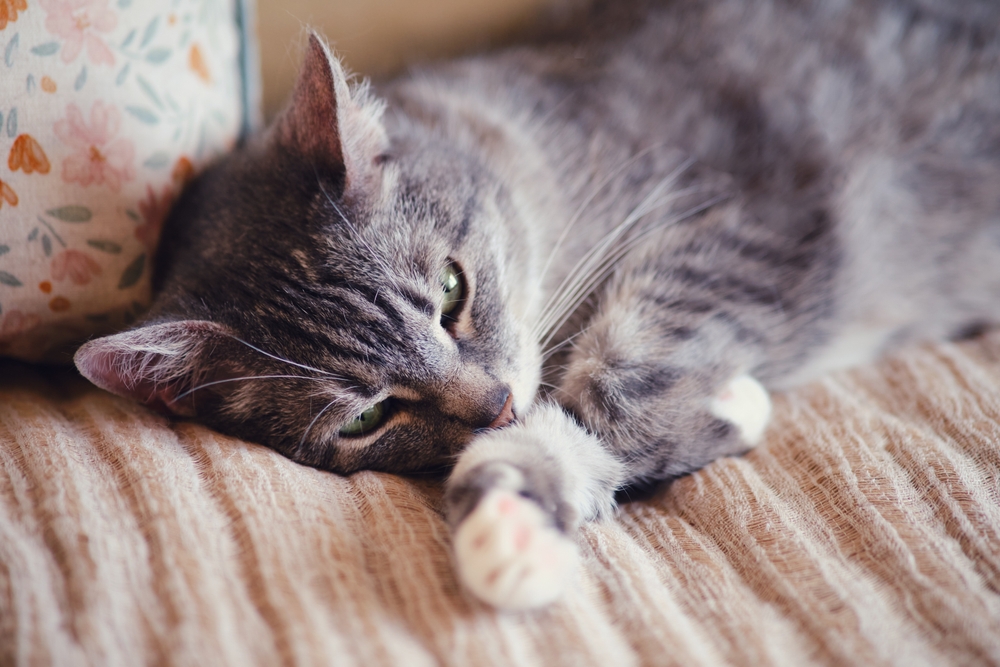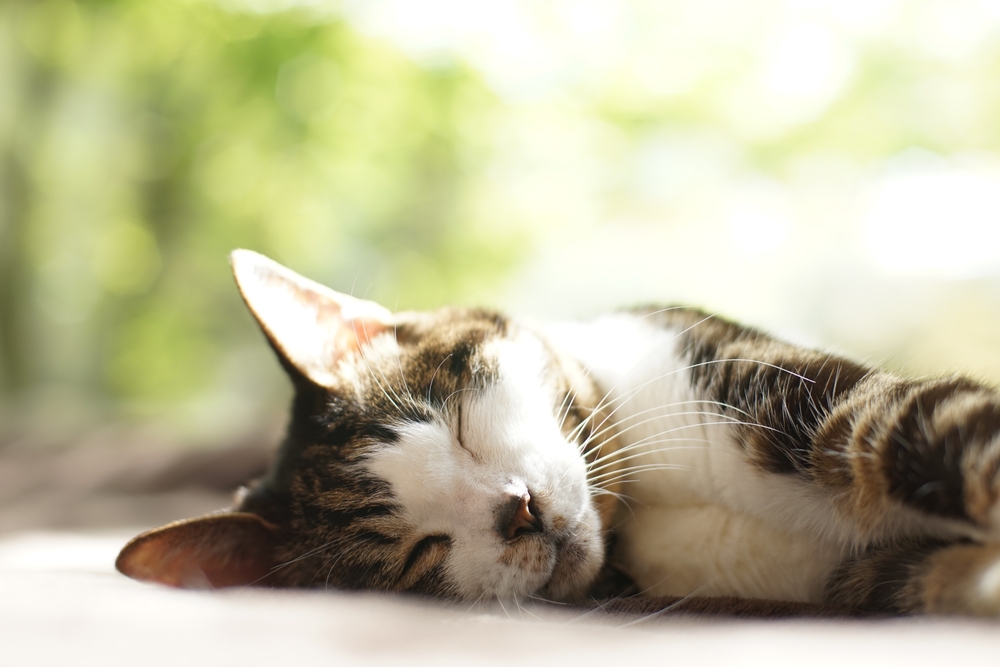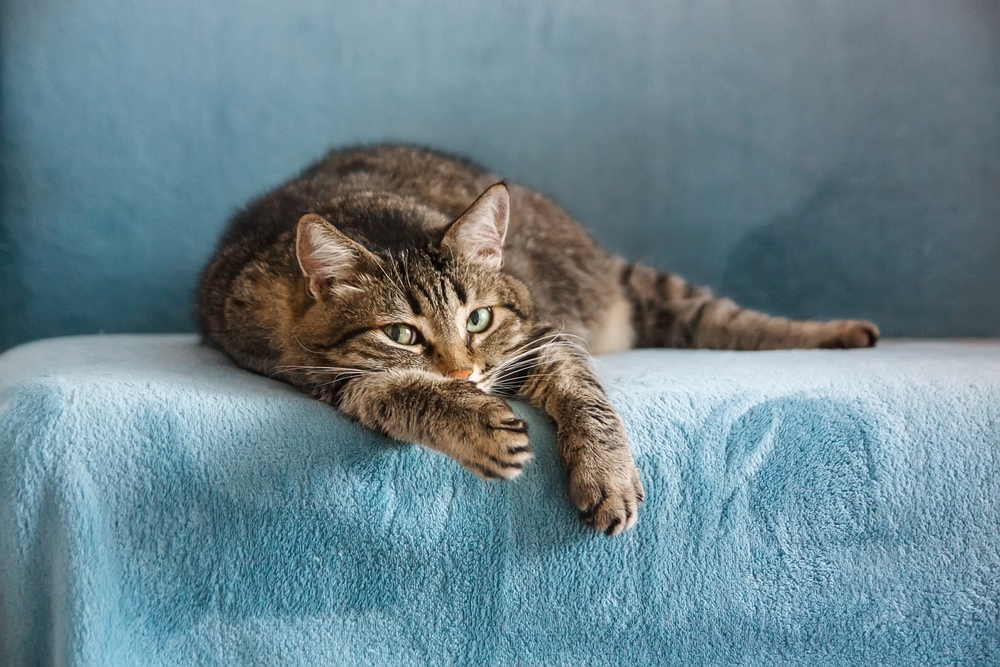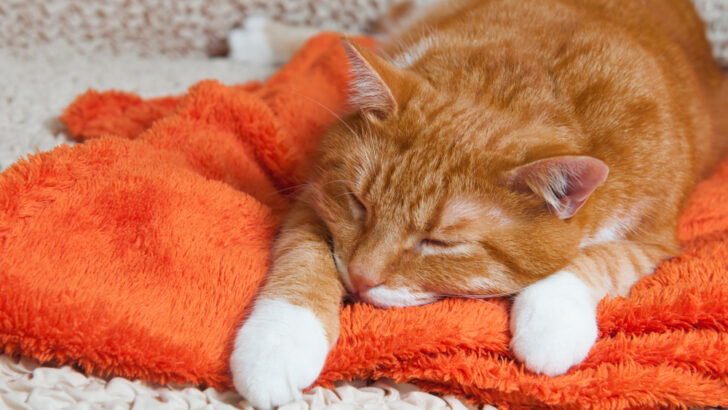Gabapentin is a medication primarily made for people. However, veterinarians have started using it on felines as well since it helps with treating anxiety, seizures, chronic pain, and epilepsy. But what to do when you notice that your cat can’t walk after gabapentin? Is your furry friend in danger?
Even though this drug isn’t FDA-approved for pets, it has the green light when it comes to usage on people. It’s known to help with various conditions, which is mainly why trained vets have started using it on cats.
They figured out that the right dosage of gabapentin can have a positive effect on felines. For example, if your cat is afraid of the vet and you can’t calm her down before a vet trip, giving her gabapentin may calm her down and reduce her anxiety.
Or, if your cat suffers from arthritis and deals with chronic pain on a daily basis, this medication can be a great solution for that as well. It blocks neurons that are stimulated by pain, which means that your precious pet won’t experience that aching feeling anymore.
Other conditions that can be controlled with gabapentin are seizures and epilepsy – it can sometimes even prevent them completely.
So it doesn’t come as a surprise that vets have decided to use gabapentin on felines. But while it’s obvious that they know what they’re doing, they can’t always guarantee that your cat won’t experience any side effects.
Is it possible that a cat can’t walk after gabapentin?

All of a sudden, you realize that your feline is having some difficulties walking. She’s having a hard time getting up from a sitting or lying position. And even if she does manage to get up, it doesn’t look like her legs can hold her.
She’s limping while walking or she even ends up falling down. You tried playing with her favorite feather string but it doesn’t look like she’s able to maintain her body in a standing position, so she simply gives up.
Behavior such as this seems concerning and you’re unsure what’s going on. Could her medication be the cause? Is it possible that a cat can’t walk after gabapentin?
Actually, difficulty walking could be one of the side effects of taking this drug. Since it affects the nervous system, it could cause weakness in the legs. That’s why your feline has been experiencing difficulties doing her everyday things such as getting inside her litter box.
This reaction doesn’t necessarily occur right after taking the medication. Sometimes, it can take days before you realize that something’s off.
What to do when your cat can’t walk after gabapentin
Now that you know that there’s a chance your cat’s wobbly legs are a result of a drug, you may get worried: “What to do now? Gabapentin was supposed to help my kitty, but now she seems to be struggling even more!”
I know how stressful this feeling can be, but take a deep breath and calm down. Everything is going to be okay if you follow these steps.
1. Call your vet

Your vet is the first person who should be aware of any changes in your cat’s behavior. Especially after introducing a new medication.
So, before you start panicking, get in touch with your vet and take things from there. They’re qualified and will know what next steps to take.
Once you explain to him all of the symptoms, he may tell you to adjust the dosage or to stop giving gabapentin to your cat completely. He may even suggest switching to an alternative medication.
Whatever you do, don’t change the dosage on your own.
2. Pay close attention to your cat’s behavior
Your vet may suggest closely observing your cat for the next 24 hours since this symptom shouldn’t last any longer than that.
Does your cat show difficulty walking immediately after taking medication? Or does it happen a few hours later? Are the side effects long-lasting or do they come and go periodically? Have you noticed any other adverse reactions to the drug or are her wobbly legs the only things that’s worrying you?
These are some things to pay attention to and be sure to let your vet know about them.
3. Make your living space safe for your cat
If your cat can’t walk after gabapentin, her daily routine will drastically change. She won’t be able to walk to the litter box or jump on the sofa to reach her favorite toy. Her food and water bowl won’t be as easy to reach, which puts her at risk of dehydration and undereating.
You’ll have to make some changes in her environment so she has everything she needs right by her side. Move her feeding and drinking area closer to her current resting place. Also, make sure that the floor is clear of any obstacles that may make it even harder for your cat to walk.
If you have slippery floors, place a rug over them so your feline doesn’t slip and fall. If there are any pieces of furniture she can trip over, make sure to move them into another room until she gets better.
All in all, just ensure that your cat’s environment is safe for her while she’s not feeling herself.
Other possible side effects of gabapentin

Vets believe that gabapentin is safe for cats when given the right dosage. However, just like humans, individual felines also react differently to medication, which means that some may experience certain side effects.
Now that your cat is already struggling with walking after taking gabapentin, you should observe her behavior and check for additional reactions to the medicine. Here’s what she may experience.
1. Fatigue
Since the drug affects the nervous system, your pet may show signs of fatigue and drowsiness. Some cats may feel extremely dazed, while others may show no signs at all.
So, there’s no way you can know that your cat will experience this side effect. However, if you notice any change in her energy levels, make sure to mention it to your vet.
2. Vomiting
Some people believe that it’s normal for cats to vomit on a regular basis, but you should know that nausea is usually a reaction to something. In this case, it can be gabapentin.
If your cat has started to vomit after the introduction of a medicine, call your vet and let him know what’s happening. It’s always better to be safe than sorry.
3. Diarrhea
Another possible side effect of gabapentin is diarrhea. It tends to happen often, but it doesn’t mean that you should ignore it.
Make sure your cat’s litter box is clean all the time so she can do her business there without making a mess around your house. We all know that cats are clean freaks and they won’t use a litter box that isn’t spotless.
In the meantime, let your vet know that you’ve identified another possible side effect so he can instruct you on what to do next.
4. Shakiness

When you notice your pet shaking, you may get worried, and understandably so. But don’t panic right away. This behavior can also be a possible side effect of gabapentin.
Just make sure to pay close attention to your cat. Be there for her as she may experience serious difficulties walking.
5. Increased appetite
If your cat has recently started taking gabapentin and now she’s showing signs of increased appetite, then the medicine could be the cause. I know that your furbaby has always been a real foodie, but this sudden change in her eating habits could be the result of a drug.
Despite her meows for more food, be sure to keep her portions balanced. Don’t overfeed her – since that can cause a whole range of other issues.
And even though this sudden change in appetite doesn’t seem serious, you should still let your vet know about it.
6. Restlessness
Is your cat suddenly meowing more than she used to? Is she acting overly excited, which is abnormal behavior for her?
This restlessness could also be one of the symptoms of gabapentin. Your cat is easily startled due to the medication.
7. Sleeping more than usual
Cats love to eat and sleep – I’m sure this is how most of us would describe our furry friends. And it’s a hard truth.
But when you notice your cat sleeping more than usual, you should assume that something’s off. When taking a medication such as gabapentin, sleepiness and drowsiness could follow as side effects.
Again, it may not sound like a big deal, but don’t ignore this symptom. Give your vet a call to let him know what’s going on.
If your cat already can’t walk after gabapentin, any of these additional side effects should be taken seriously. I’m sure you want to do whatever you can to help your furriend and getting in touch with a professional is the best way to do so.
